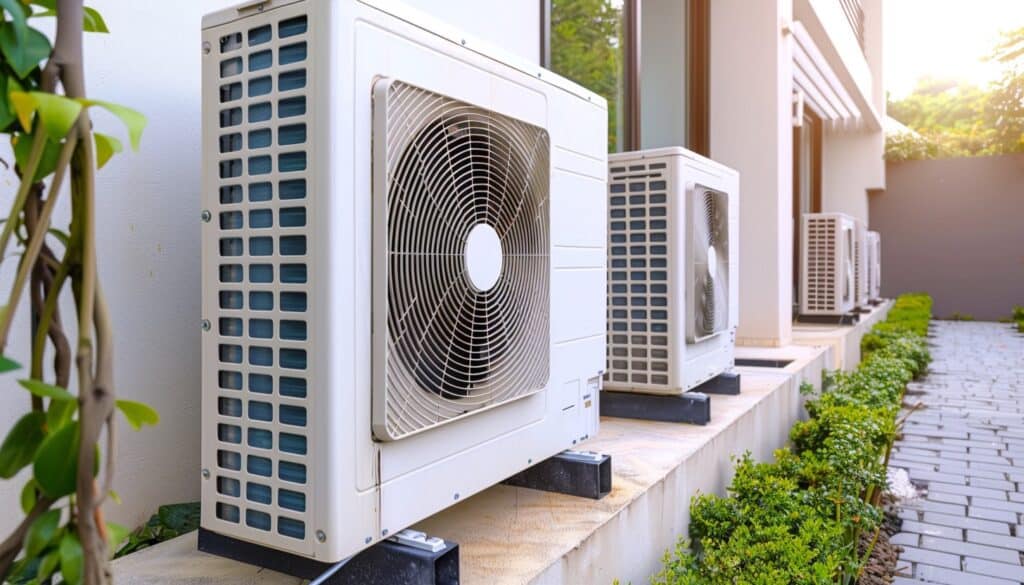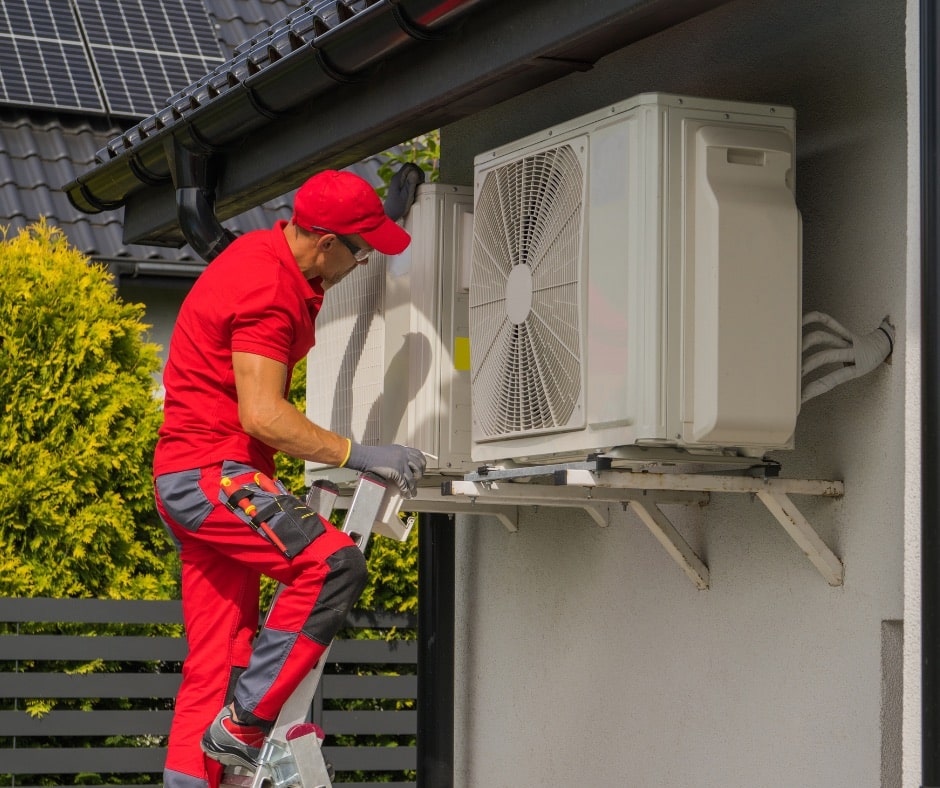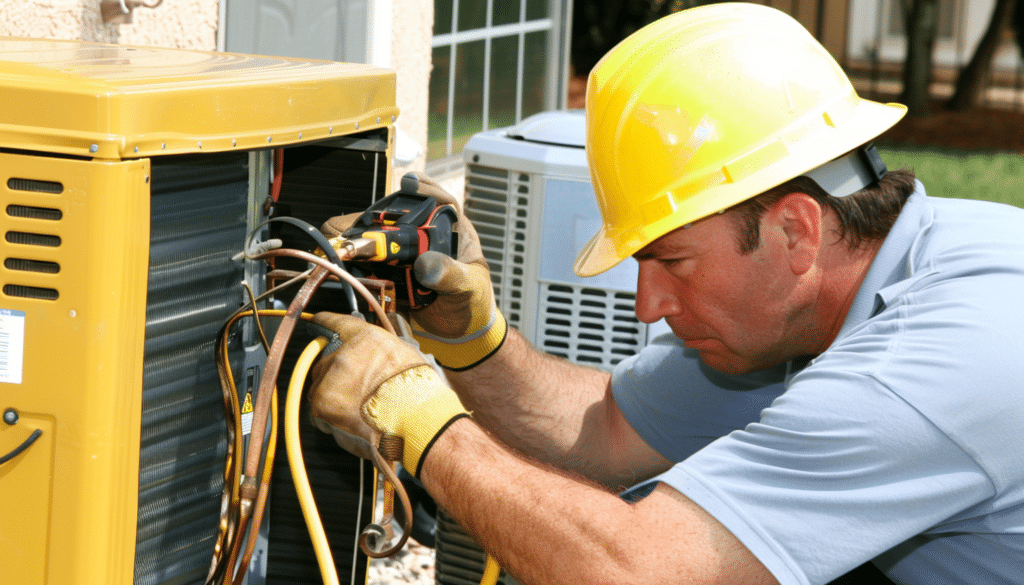HVAC System Problems? Here’s How to Diagnose Them
Table of Contents
- Introduction
- The Importance of Accurate HVAC System Diagnosis
- Essential Tools for Diagnosing HVAC System Problems
- 1. Digital Multimeter
- 2. Manifold Gauge Set
- 3. Thermometer
- 4. Refrigerant Leak Detector
- 5. Psychrometer
- 6. Combustion Analyzer
- 7. Insulation Tester
- The Role of HVAC Professionals in Problem Diagnosis
- FAQs
- Conclusion
Introduction
When your HVAC system malfunctions, diagnosing the problem accurately is crucial to restoring comfort in your home or business. Whether you’re dealing with uneven temperatures, strange noises, or reduced efficiency, having the right tools and knowledge can make all the difference. In this blog, we’ll explore the top tools essential for diagnosing HVAC system problems effectively. By understanding how to use these tools, homeowners and professionals alike can ensure that their HVAC systems run smoothly year-round.

The Importance of Accurate HVAC System Diagnosis
HVAC system problems can arise from a variety of sources, from electrical issues to refrigerant leaks. Accurate diagnosis is the first step toward effective repair and maintenance. Misdiagnosing an HVAC issue can lead to unnecessary repairs, increased costs, and prolonged discomfort. That’s why having a reliable set of diagnostic tools is essential for any HVAC professional or homeowner looking to maintain their system efficiently.
Essential Tools for Diagnosing HVAC System Problems
Diagnosing HVAC system problems requires a combination of precision tools and expertise. Below, we’ve outlined the most crucial tools that every HVAC technician or informed homeowner should have in their toolkit.
1. Digital Multimeter
A digital multimeter is one of the most versatile tools for diagnosing HVAC system problems. It allows you to measure voltage, current, and resistance, which are vital in troubleshooting electrical components within the HVAC system. Whether it’s checking the power supply to the compressor or testing the thermostat, a digital multimeter is indispensable.
- Key Uses:
- Measuring electrical current in circuits.
- Testing the continuity of wires.
- Diagnosing faults in electronic components.
By regularly using a digital multimeter, HVAC professionals can quickly identify electrical issues, ensuring that the system’s electronic components are functioning correctly.

2. Manifold Gauge Set
A manifold gauge set is another essential tool used to measure the pressure of refrigerants in HVAC systems. This tool is crucial for diagnosing problems related to the cooling efficiency of an air conditioning unit or heat pump. Incorrect pressure levels can indicate leaks, blockages, or insufficient refrigerant, all of which can compromise system performance.
- Key Uses:
- Checking the refrigerant pressure.
- Diagnosing leaks in the refrigerant lines.
- Ensuring the correct refrigerant charge.
Using a manifold gauge set allows HVAC professionals to monitor the system’s pressure levels accurately, preventing issues such as overheating or freezing within the unit.
3. Thermometer
An accurate thermometer is critical for diagnosing temperature-related issues within an HVAC system. It helps in measuring the air temperature at various points within the system, ensuring that the heating or cooling is being distributed evenly throughout the space.
- Key Uses:
- Measuring the supply and return air temperature.
- Checking the temperature difference across the evaporator coil.
- Ensuring the thermostat is reading accurately.
By using a reliable thermometer, you can verify that the HVAC system maintains the desired indoor temperature, avoiding problems like inconsistent cooling or heating.
4. Refrigerant Leak Detector
Refrigerant leaks are one of the most common HVAC system problems, and a refrigerant leak detector is the tool you need to identify them. This device detects the presence of refrigerants in the air, helping you pinpoint leaks that could otherwise go unnoticed.
- Key Uses:
- Identifying small, hard-to-detect leaks.
- Verifying repairs after a leak has been fixed.
- Ensuring compliance with environmental regulations.
A refrigerant leak detector is crucial for maintaining system efficiency and preventing the environmental harm caused by refrigerant leaks.

5. Psychrometer
A psychrometer measures both temperature and humidity levels, providing a comprehensive overview of the indoor air quality and HVAC system performance. This tool is essential for diagnosing issues related to humidity control, which can affect both comfort and the longevity of the HVAC system.
- Key Uses:
- Measuring relative humidity in the air.
- Diagnosing issues with dehumidification or humidification systems.
- Ensuring optimal indoor air quality.
Using a psychrometer helps maintain balanced humidity levels, crucial for both comfort and the proper functioning of the HVAC system.
6. Combustion Analyzer
A combustion analyzer is vital for diagnosing problems in heating systems, especially those that involve fuel combustion like furnaces or boilers. This tool measures the efficiency of the combustion process and the levels of gases like carbon monoxide, ensuring the system is both safe and efficient.
- Key Uses:
- Measuring the combustion efficiency of heating systems.
- Detecting dangerous levels of carbon monoxide.
- Ensuring compliance with safety standards.
A combustion analyzer is crucial for maintaining safe and efficient heating systems, protecting both your home and its occupants.
7. Insulation Tester
An insulation tester checks the integrity of the insulation in the electrical components of your HVAC system. Poor insulation can lead to electrical leaks, inefficiencies, and potential hazards. This tool helps ensure that the system’s wiring and components are properly insulated, reducing the risk of electrical faults.
- Key Uses:
- Testing the insulation resistance in wires and components.
- Preventing electrical leaks and shorts.
- Enhancing system safety and longevity.
Using an insulation tester is a proactive step in preventing electrical problems that could lead to larger system failures or safety hazards.

The Role of HVAC Professionals in Problem Diagnosis
While having the right tools is essential, the expertise of HVAC professionals is what truly ensures accurate diagnosis and effective solutions. At Wintri, our team of skilled technicians combines years of experience with cutting-edge diagnostic tools to address HVAC system problems efficiently. Whether it’s a routine inspection or an emergency repair, our professionals are equipped to handle any challenge, ensuring your comfort year-round.
Why Choose Wintri for Your HVAC Diagnosis?
- Customized Solutions: We tailor our approach to the unique needs of your space, whether residential or commercial.
- Expert Technicians: Our team is trained to use the latest diagnostic tools for precise problem-solving.
- Comprehensive Services: From installation to repair, we offer a full range of HVAC services to keep your system running smoothly.
FAQs
What are the most common HVAC system problems?
Common issues include refrigerant leaks, faulty thermostats, clogged filters, and electrical problems. Regular maintenance and prompt repairs can prevent these issues from escalating.
How can I tell if my HVAC system has a refrigerant leak?
Signs of a refrigerant leak include reduced cooling efficiency, hissing noises, and frozen coils. Using a refrigerant leak detector can help identify the source of the leak.
Why is my HVAC system making unusual noises?
Unusual noises can result from various issues, including loose components, clogged filters, or failing parts. A thorough inspection by an HVAC professional can diagnose and resolve the problem.
How often should I schedule HVAC maintenance?
It’s recommended to have your HVAC system inspected and serviced at least twice a year—once before the cooling season and once before the heating season. This helps ensure optimal performance and longevity.
Can I diagnose HVAC problems myself, or should I hire a professional?
While basic issues like clogged filters can be handled by homeowners, most HVAC system problems require professional diagnosis. Technicians have the tools and expertise to accurately identify and resolve issues, ensuring safety and efficiency.
Conclusion
Diagnosing HVAC system problems requires a combination of the right tools and professional expertise. By understanding and using these essential tools, you can ensure that your HVAC system remains efficient, safe, and reliable. Whether you’re a homeowner looking to troubleshoot minor issues or a professional aiming to provide top-notch service, the tools listed above are indispensable. At Wintri, we’re committed to providing our customers with the best HVAC services, combining advanced technology with expert knowledge to keep your systems running smoothly. Contact us today for all your HVAC needs, and experience the Wintri difference.

